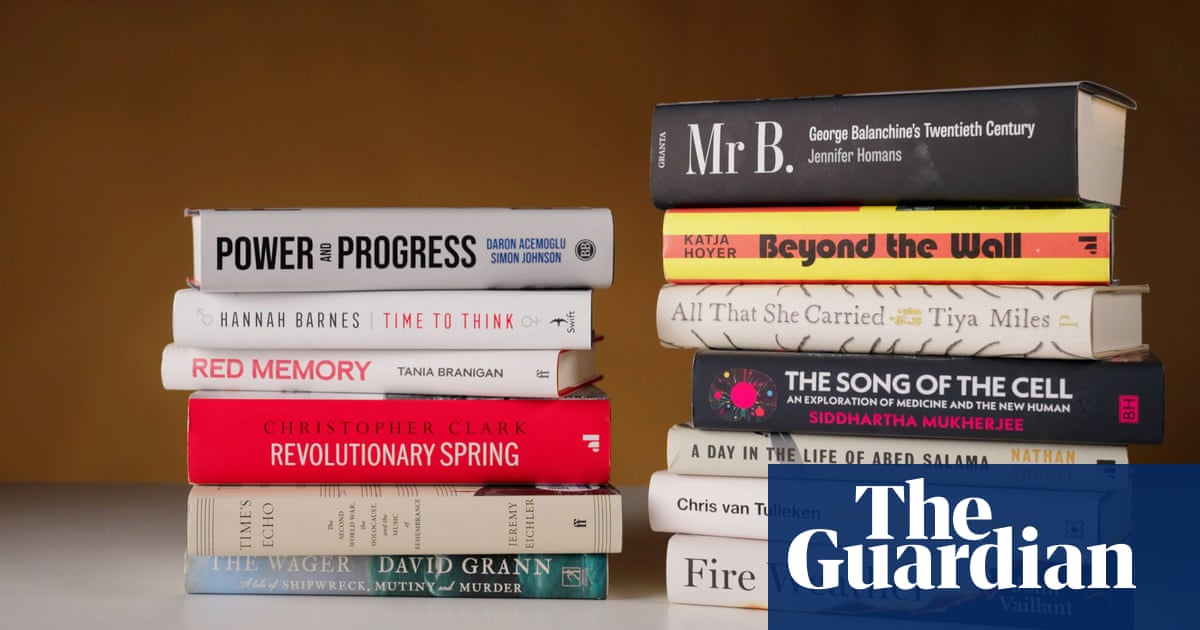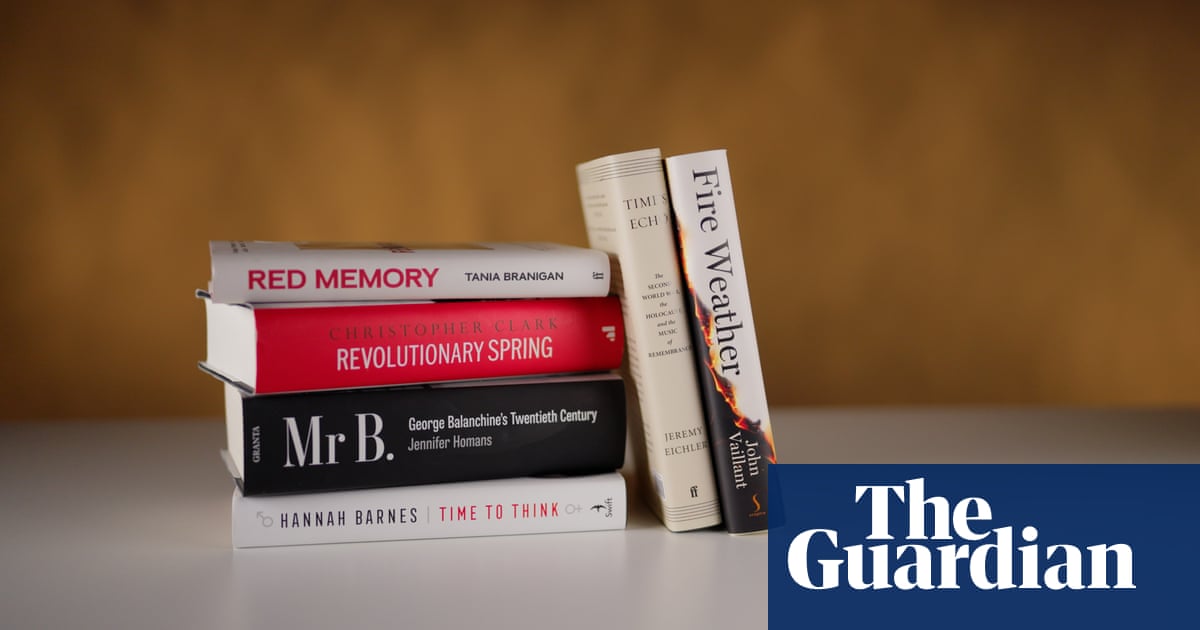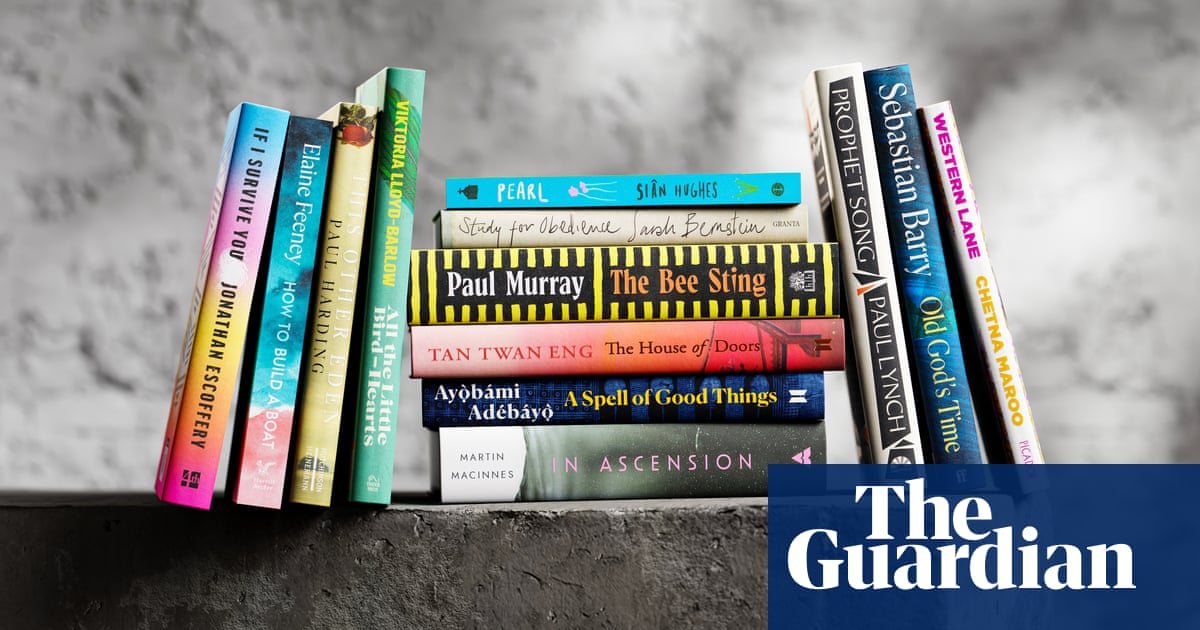
History titles dominate this year’s Baillie Gifford prize for nonfiction longlist, with books about the second world war, American slavery and Europe’s 1848 revolutions being recognised.
The longlist of 13, announced today, features Guardian leader writer Tania Branigan’s Red Memory, an exploration of the lasting impacts of China’s Cultural Revolution through the stories of witnesses.
Memory is also the theme of another shortlisted title, Jeremy Eichler’s Time’s Echo: The Second World War, The Holocaust, and The Music of Remembrance, which looks at how composers transformed their experiences of the second world war and the Holocaust into musical works.
Eichler’s and Branigan’s books are two of three debut books on the shortlist: the other is Time to Think: The Inside Story of the Collapse of the Tavistock’s Gender Service for Children by Hannah Barnes, which looks at what led to the closure of Britain’s only specialist clinic for transgender children.
The winner of the prize will be awarded £50,000. This year’s judging panel features Guardian theatre critic Arifa Akbar, Financial Times literary editor Frederick Studemann, author Andrea Wulf, writer and historian Ruth Scurr, journalist and critic Tanjil Rashid and chief executive of the Royal Society of Arts Andy Haldane.
Judges selected the longlist from 265 nonfiction books published between 1 November 2022 and 31 October 2023. Chair of judges Studemann said that narrowing down a longlist “was never going to be easy”, and discussions were “intense and rigorous”, as well as “enjoyable and highly stimulating”.
The longlist features two authors who have been previously recognised by the prize: Siddhartha Mukherjee, who was longlisted in 2016, and David Grann, shortlisted in 2009. This year, Mukherjee has been longlisted for The Song of the Cell: An Exploration of Medicine and the New Human, while Grann was selected for The Wager: A Tale of Shipwreck, Mutiny and Murder, which tells the story of an 18th-century maritime disaster.
Industry comes under the microscope in John Vaillant’s Fire Weather: A True Story from a Hotter World, focused on the oil industry, and Chris van Tulleken’s Ultra Processed People: Why Do We All Eat Stuff That Isn’t Food … and Why Can’t We Stop?, which looks at processed food production.
Other longlisted titles include Power and Progress: Our Thousand-Year Struggle Over Technology and Prosperity, by Daron Acemoglu and Simon Johnson; Revolutionary Spring: Fighting for a New World 1848-1849, by Christopher Clark; Mr. B: George Balanchine’s Twentieth Century, by Jennifer Homans; Beyond the Wall: East Germany, 1949-1990, by Katja Hoyer; All That She Carried: The Journey of Ashley’s Sack, a Black Family Keepsake, by Tiya Miles; and A Day in the Life of Abed Salama: A Palestine Story, by Nathan Thrall.
“I’m delighted that the resulting longlist spans a wide range of subjects and genres – from history and science to technology and geopolitics along with a flash of swashbuckling adventure,” said Studemann. The longlisted books “share an ability to communicate lucidly and engage with readers in an intelligent and relevant way”.
Six shortlisted titles will be announced on 8 October at Cheltenham literature festival. This year, to mark the award’s 25th anniversary, all shortlisted authors will receive £5,000, up from £1,000. The winner will be announced on 16 November.
Baillie Gifford, an investment management firm, is also the main sponsor of the Edinburgh international book festival. In August, the company faced criticism because it has up to £5bn invested in fossil fuels. More than 50 authors including Zadie Smith, Ali Smith and Gary Younge signed a letter urging the festival to drop any sponsor that invests in fossil fuels.
Previous winners of the Baillie Gifford prize have included Antony Beevor, Jonathan Coe, Serhii Plokhy, Hallie Rubenhold and Katherine Rundell.












